Push the potential of
Neuroscience
Making new discoveries in a collaboration between academia, industry, and healthcare systems.
In Denmark, Neuroscience goes beyond the lab—it touches lives.
As a hub for cutting-edge brain research, Denmark offers you the environment to explore the science of well-being and create real-world applications that improve health and quality of life.
Our universities and research centres are recognised for their pioneering Neuroscience programs, and a culture of strong collaboration between academia, industry, and the healthcare system brings together researchers, clinicians, and businesses so they can accelerate scientific breakthroughs.
A global outlook is part of the package, and as a researcher here, you will be part of an international community and cross-border initiatives with global impact.
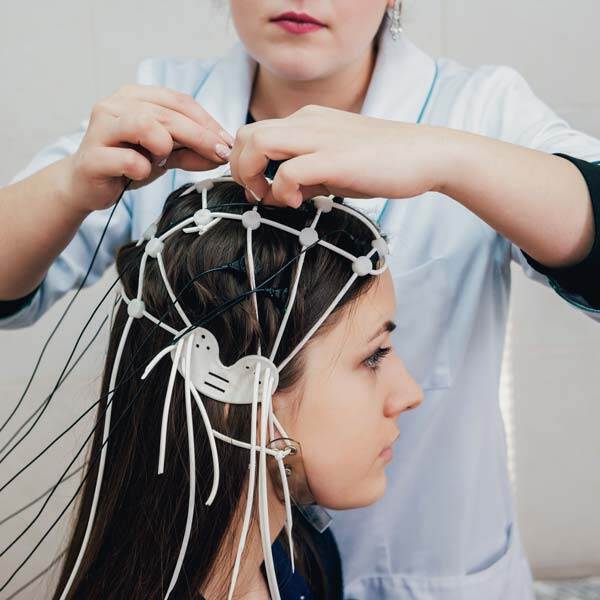
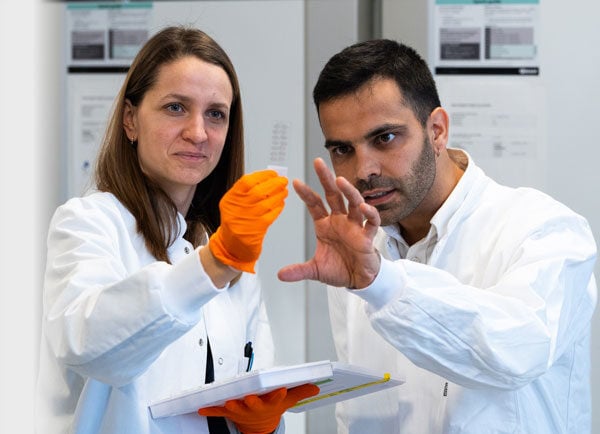
Daniel Rasmussen
Open research positions in Neuroscience
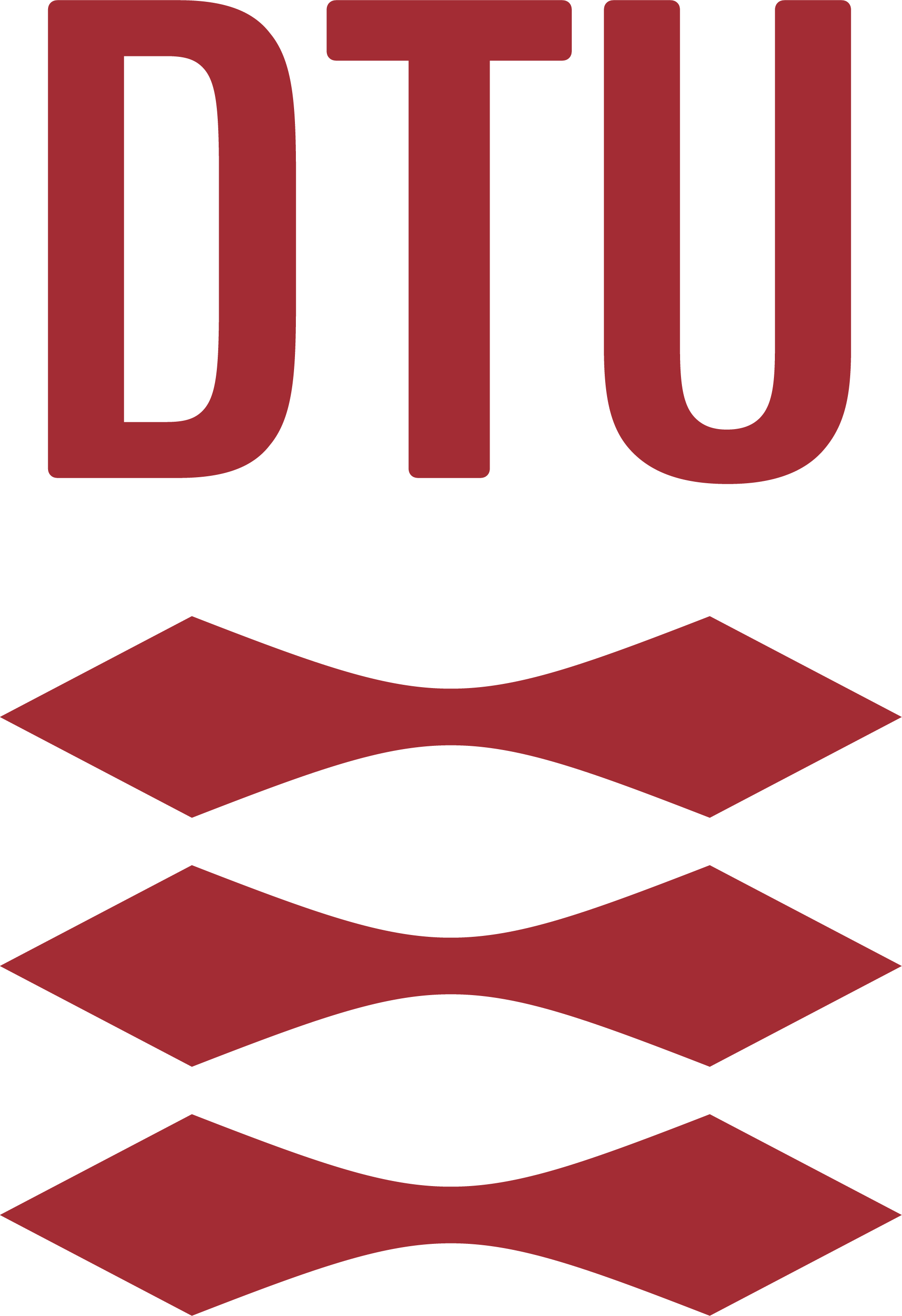
PhD scholarship in Photonic Reservoir Computing in Coupled Resonant Structures - DTU Electro
The Machine Learning in Photonic Systems group at DTU Electro at the Technical University of Denmark is seeking a candidate for a PhD position to research multiplexing in photonic integrated circuits for enhancing computing efficiency through parallelism. The PhD student will participate in an international team in an EU-funded Doctoral Network project called MINDnet. The project consists of 15 Ph.D. students at 7 universities, one research center and two companies. The project has partners from eight different EU countries. All 15 Ph.d. projects are within the overall theme of neuromorphic computing and analog signal processing, targeting applications in the fields of communication, sensing, geolocalization, space and biomedical. This Ph.D. project will take place at DTU Electro. Apart from the time at DTU there will be secondments of minimum 3 months at Technical University of Illmenau (DE), HPE (BE) and University of Trento (IT). There will also be regular meetings with the other 14 Ph.D. students in the doctoral network, including 4 training schools and two workshops. Further information Further information may be obtained from Assoc. Prof. Francesco Da Ros (fdro@dtu.dk).
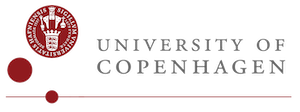
Post doc in headache research
As post doc you will investigate the signalling pathways driving the headache phenotype in a rodent model of idiopathic intracranial hypertension. The position will start on the 1st of August 2026, and the job is in the Kaag Rasmussen lab at Center for Translational Neuromedicine, Copenhagen, Denmark. Center for Translational Neuromedicine focuses on developing new approaches for examining and treating neurological diseases, primarily using the tools of physiology and imaging coupled with cell and gene therapy. Our emphasis is on using these technologies to enable neural and glial cell replacement in the adult brain and spinal cord, as a means of both disease modelling and therapeutic repair. Information on the department can be found at: https://ctn.ku.dk/. Our center Center for Translational Neuromedicine currently has 55 employees and students and is divided into five labs. CTN is characterized by a highly ambitious research environment. The Center is highly interdisciplinary and has many international collaborators. The post doc will be part of the Kaag Rasmussen lab, Division of Pain Volume Transmission. Being part of the Kaag Rasmussen lab offers an opportunity to work in an in vivo lab engaged in the neuroscience of pain signalling, focusing on transgenic animal models, behaviour, in vivo imaging and omics technologies. CTN is part of the Faculty of Health and Medical Sciences, University of Copenhagen, and is located at Panum. The Center comprises modern laboratories and excellent facilities within neuroscience. The project that we are recruiting for focuses on delineating the signalling pathways that are driving the migraine phenotype. The project is a continuation of this research paper published in Science July 2024: https://www.science.org/doi/10.1126/science.adl0544. Here we identified how the peripheral sensory nerves are activated in a mouse model of migraine with aura. In this current project we will investigate the engagement of downstream signalling pathways of the proteins identified in the research paper above with a goal of delineating the specific signalling pathways that are driving the migraine phenotype. Questions For further information please contact Martin Kaag Rasmussen martin.rasmussen@sund.ku.dk or Center Administrator Ann Christensen, ann.christensen@sund.ku.dk.
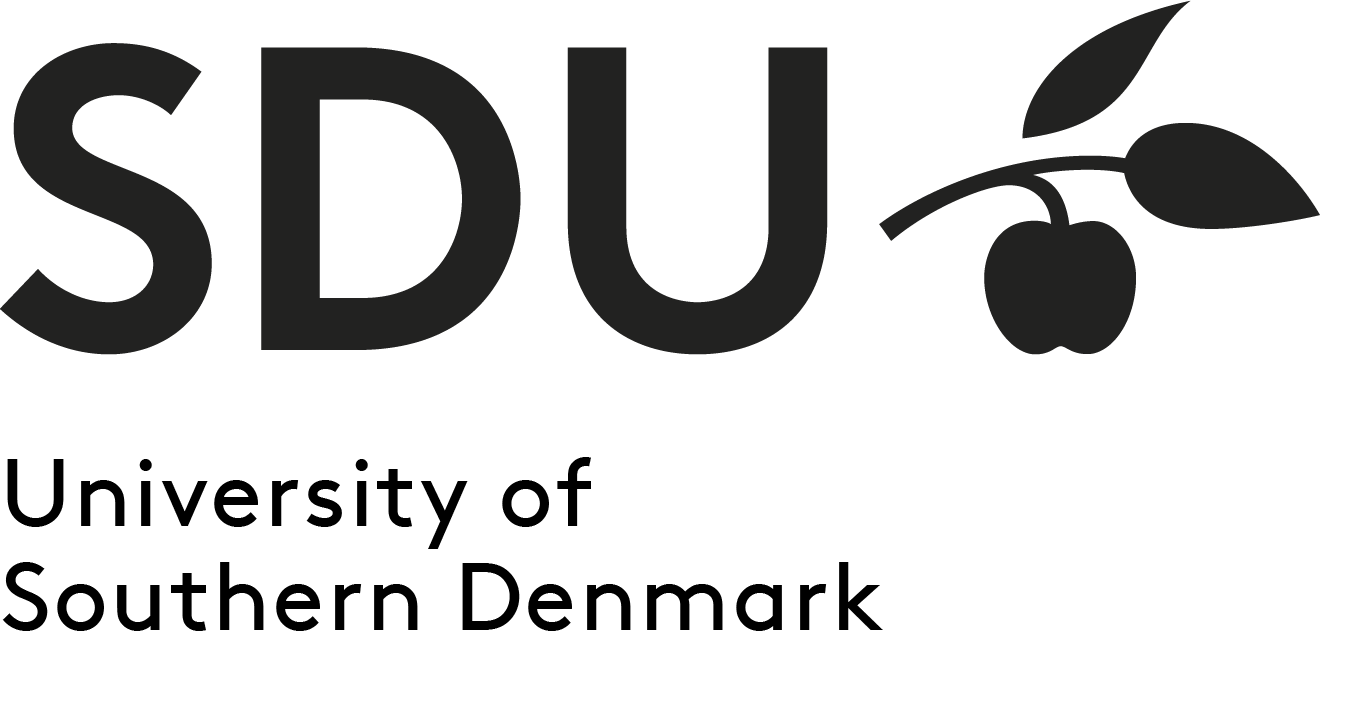
Declaration of interest regarding PhD project on the long-term safety and benefits of ADHD medicatio...
ADHD is one of the most common psychiatric diagnoses in childhood and is characterized by persistent difficulties with attention, hyperactivity, and impulsive behavior. The condition can lead to significant challenges at school, at home, and in social relationships. In Denmark, around 5% of children and young people currently receive medication for ADHD—a proportion that has increased markedly over the past decade. Although many experience improvement in their symptoms, we still know far too little about how these medications affect children and adolescents in the long term. In particular, there is limited knowledge about the benefits and risks of treatment in real-world settings outside the short, controlled framework of clinical trials. In this project, we will combine Danish and Norwegian health registers with school data, clinical assessments of symptoms, and information on municipal services. We will analyze how ADHD medication affects the risk of serious adverse outcomes such as cardiovascular disease, substance misuse, and impaired growth. At the same time, we will examine how medication influences children’s schooling, well-being, and symptom levels. Finally, we will map how access to non-pharmacological support—such as parent training and school-based assistance—varies across the country. The project will generate new knowledge about how ADHD medication works in real-life settings and will provide a stronger basis for decision-making for families, professionals, and policymakers. For further information about the project, please contact: Helene Kildegaard Department of Public Health University of Southern Denmark (SDU) E-mail: hckildegaard@health.sdu.dk The pharmacoepidemiology group at Clinical Pharmacology, Pharmacy and Environmental Medicine (CPPEM), Department of Public Health, University of Southern Denmark, is looking for applicants for a fully funded 3-year PhD scholarship. The position is to be filled from June 1, 2026, or as soon as possible thereafter. The position is part of a newly funded research project aiming to understand long-term safety and beneficial effects of ADHD medication in children, adolescents and young adults as well geographical variation in access to support and diagnostic pathways.
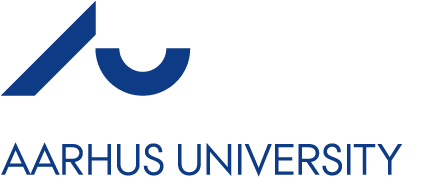
Laboratory technologist within neuroscience
The Department of Biomedicine at Faculty of Health at Aarhus University invites applications for a position as a Laboratory technologist within neuronal stem cells as per 1 May 2026 or as soon as possible thereafter. The position is a permanent full-time position. The Department of Biomedicine prioritises diversity and a good work environment, as this is a prerequisite for groundbreaking research. In a diverse and international research environment, dedicated employees are looking to generate new knowledge within biomedical research areas such as infection and inflammation, membranes, neuroscience and personalised medicine. The Department of Biomedicine provides research-based teaching of the highest quality and is responsible for a large part of the medical degree programme. Academic staff contribute to the teaching. English is the preferred language in the laboratory, at meetings and at seminars. The department employs approx. 500 people from all over the world, and they make use of the department's modern laboratory-, core- and animal facilities. The Department of Biomedicine focuses on innovation, entrepreneurship and collaboration with business and industry, and numerous researchers from the department have established companies to develop new medicinal treatments founded in professional scientific basic research. You can read more about the department here and about the faculty here. Your job responsibilities As a laboratory technologist, your primary tasks are advanced cell culture work and day-to-day lab management. You contribute to neuroscience through differentiation of stem cells and generating omics data. In your daily work, you have a close interaction with competent colleagues. Your main tasks will consist of: Maintain and differentiate human stem cells (essential) Generate and maintain brain organoids (preferred) Use standard molecular biology techniques, including cloning and DNA/RNA extraction Support and contribute to high-throughput experiments (e.g., CRISPR screens, NGS, single-cell sequencing) Manage daily laboratory operations, including ordering, inventory, scheduling, and equipment upkeep Train and support new laboratory members Work independently while collaborating effectively with team members Use Microsoft Office for documentation, reporting, and lab administration The position involves active participation in research projects using stem cells in collaboration with other laboratory members. In addition to research, you will be responsible for general laboratory management, including the administration of laboratory resources, procurement, scheduling shared duties, and training new group members. Regular participation in supervision meetings with the group leader and laboratory members is expected. Questions about the position If you have any questions about the position, please contact Professor Kyung Min Noh tel.: (+45) 2248 7695. Your place of work will be the Department of Biomedicine, Høegh-Guldbergs Gade 10, DK-8000 Aarhus C, Denmark. We expect to conduct interviews the middle of March. You will report to the Professor Kyung Min Noh

Academic Technical Assistant for Behavioral and Neurobehavioral Testing, Department of Molecular Med...
The Department of Molecular Medicine, Faculty of Health Sciences, University of Southern Denmark (SDU), invites applications for a full-time Academic Technical Assistant in the Phenotyping Core of the newly established Danish Center for Mouse Transgenics and Advanced Phenotyping (DCM-TAP). The position is available from September 1, 2026, or as soon as possible thereafter. The position is offered for an initial period of 3 years. About DCM-TAP DCM-TAP is a newly established open-access research infrastructure at SDU, integrating state-of-the-art mouse transgenics, advanced phenotyping, and microsurgery. The center is located at the new SUND campus, directly connected to Odense University Hospital, providing a unique environment for translational biomedical research. The Phenotyping Core focuses on advanced behavioral, neurological, metabolic, and physiological phenotyping of mouse models and supports researchers from SDU, other universities, hospitals, and industry. Contact information For further information about the position, please contact: Professor Kate Lykke Lambertsen Director, Phenotyping Core, DCM-TAP Department of Molecular Medicine, SDU Email: klambertsen@health.sdu.dk

Two-year Postdoc position on Neuromorphic Bioelectronics for Brain-Computer Interfaces
The Institute of Mechanical and Electrical Engineering at the University of Southern Denmark (SDU) invites applications for a 2-year Postdoctoral Researcher position. This position offers an exciting opportunity to contribute to a new research project in neuromorphic bioelectronics for brain–computer interfaces (BCIs). We are seeking a highly motivated postdoctoral researcher to design and implement a CMOS-based digital neuromorphic processor for classifying hand-movement intentions from EEG recordings of patients with hand motor impairments caused by stroke. The position is part of the multidisciplinary research project NeuroMate, which focuses on the development of intelligent assistive technologies based on brain-inspired computing. The overarching goal of the project is to enable seamless human–machine interaction by interpreting brain activity (e.g., EEG signals) in real time using energy-efficient neuromorphic hardware. The successful candidate will work on the design and hardware realization of neuromorphic systems, bridging neuroscience and electronics. The project combines expertise in circuit design, machine learning, and neurotechnology, and aims to deliver innovative solutions for applications such as brain–computer interfaces, cognitive rehabilitation, and neural prosthetics. The position is open from May 2026, and the specific start date will be agreed with the successful candidate. Further information For further information about the position, please contact Professor Farshad Moradi (moradi@sdu.dk / email), Head of the SDU Microelectronics section and Associate Professor Hooman Farkhani (farkhani@sdu.dk / email), Deputy Head of SDU Microelectronics. If you experience technical problems, please contact our email support.

Faculty position in Molecular Health (Tenure-Track Assistant Professor / Associate Professor) at Aar...
The Department of Molecular Biology and Genetics at Aarhus University aims to strengthen its research and teaching activities within the broader field of Molecular Health. We seek candidates with a strong basic molecular biology profile and with a clear focus on human health. Applications for a tenure-track Assistant Professor position or an Associate Professor position are invited, starting 15 June 2026 or as soon as possible thereafter. With this new position, we aim to engage research topics that complement and expand our current research portfolio and teaching activities. We particularly look for candidates interested in providing a molecular, mechanistic understanding of central processes in physiology, development and disease. Relevant research areas include molecular aspects of: Immunology Microbiology and infectious diseases Metabolism Ageing Disease mechanisms Contact information For further information, please contact: Head of Department, Claus Oxvig. Phone number: +45 30362460 Email: co@mbg.au.dk

PhD scholarship in Computing Parallelism Enabled by Photonic Integrated Circuits - DTU Electro
The PhD student will participate in an international team in an EU-funded Doctoral Network project called MINDnet. The project consists of 15 Ph.D. students at 7 universities, one research center and two companies. The project has partners from eight different EU countries. All 15 Ph.d. projects are within the overall theme of neuromorphic computing and analog signal processing, targeting applications in the fields of communication, sensing, geolocalization, space and biomedical. This Ph.D. project will take place at DTU Electro. Apart from the time at DTU there will be secondments of minimum 3 months at University of Pisa (IT), Fraunhofer Heinrik Hertz Institute (DE) and Spincloud (DE). There will also be regular meetings with the other 14 Ph.D. students in the doctoral network, including 4 training schools and two workshops. As a participant of the project, the PhD student will become part of a team at DTU with numerical and experimental expertise in photonic computing. The activities within the project will benefit from synergies with other projects in the group as well as with other activities at the department. The main supervisor will be Assoc. Prof. Francesco Da Ros, DTU Electro.

Professor in Basic or Translational Biomedicine
Professor in Basic or Translational Biomedicine Faculty of Health and Medical Sciences University of Copenhagen The Department of Biomedical Sciences, Faculty of Health and Medical Sciences, University of Copenhagen, seeks to appoint a professor in basic or translational biomedicine to commence 1 November 2026, or as soon as possible thereafter. The vision of the Department of Biomedical Sciences is to be a leading interdisciplinary research department that generates cutting-edge knowledge with the potential to prevent and treat diseases, improve human health, and make a positive impact on society. Our research aims to generate new knowledge that can be used in the prevention and treatment of various diseases, such as diabetes, cardiovascular disease and obesity. We strive to contribute to the advancement of biomedical research with a focus on translating our findings into practical solutions that benefit society. The staff at the department delivers cutting-edge research-based and clinically relevant undergraduate teaching on courses within biomedicine, and the staff supervises postgraduate students enrolled at the Graduate School. The Department is supported by a strong team of laboratory technicians and administrative staff. Information on the research fields and teaching activities of the department can be found at the Department’s website Job description We seek a highly motivated candidate with a documented, internationally recognized, independent, and original research portfolio within a research field linked to the Department’s research themes and with the research methods within the spectrum from structural biology, single cell studies, and experiments in tissues, organs and whole animals to experiments in humans. We expect the candidate to fully engage in delivering and developing top notch research-based and student activating teaching. Furthermore, we would favour strong translational experience linking to national and/or international clinical environments and/or commercial and pharmaceutical companies. Finally, we emphasize that public science dissemination as well as a focus towards innovation are key to the Departments output. Questions For further information, please contact Head of Department, Birgitte Holst, holst@sund.ku.dk.

Tenure-Track Assistant Professor / Associate Professor in Bioinformatics and/or Computational Biolog...
A position as Tenure-Track Assistant Professor or Associate Professor in Bioinformatics and/or Computational Biology is available from September 1, 2026, at the Section for Bioinformatics and Computational Biology (BiRC), Department of Molecular Biology and Genetics (MBG), Aarhus University (http://birc.au.dk), Denmark. The application deadline is 7 April 2026. The position We seek a highly motivated researcher in bioinformatics and/or computational biology to complement and expand our current research portfolio and teaching activities. We welcome applicants within all areas of bioinformatics and computational biology with a strong focus on development of computational and statistical methods, particularly within machine learning and artificial intelligence. The applicant must have earned a PhD degree and have demonstrated excellence in research and scholarship within the field of interest. As an assistant professor in a tenure track position, you are expected to develop an independent and competitive research program, and you will be offered local mentoring during the tenure track period. Start-up funds to establish a competitive research program are negotiable. In case of more senior applicants, a position as associate professor will be considered. As a researcher at MBG, you will be part of a vibrant, collaborative and international research environment. Internal communication and teaching are primarily conducted in English and international candidates are therefore not required to learn Danish. BiRC and MBG aim to be an attractive and inspiring workplace for all, and we view equality and diversity as assets. Aarhus University offers a broad variety of services for international researchers and accompanying families, including relocation service and career counselling to expat partners. English is spoken with high proficiency by most Danes, which will ease the arrival and integration of international applicants. Further information For more information, please contact Head of Department (MBG) Claus Oxvig Phone number: +45 30362460 Email: co@mbg.au.dk or Head of Section for Bioinformatics and Computational Biology (BIRC) Christian Storm Pedersen Phone number: +45 27782810 Email: cstorm@birc.au.dk For information about BiRC and MBG, see http://www.birc.au.dk and http://www.mbg.au.dk

Postdoctoral Fellow in Systems Motor Neuroscience
A 3-year postdoctoral fellowship is available in the laboratory of Professor Ole Kiehn at the Department of Neuroscience, Faculty of Health and Medical Sciences, University of Copenhagen, Denmark. The lab focus is to understand the mechanisms by which neurons and neuronal circuits operate and integrate to generate and control movements. The aim of the project is to investigate and understand the contribution of distinct supraspinal neuronal circuits to movement in mammals. Questions For further information please contact Ole Kiehn, ole.kiehn@sund.ku.dk or Ima Mustafic, imalea@sund.ku.dk Foreign applicants may find this link useful: ism.ku.dk (International Staff Mobility).

Postdoc/Assistant professor in Drosophila Cellular and Molecular Neurobiology
The aim of the project is to use accelerated evolution in the Drosophila model identify mutations increasing the resilience against Parkinson’s disease. The Kjaerulff group is an interdisciplinary team based at Department of Neuroscience working at the intersection between Drosophila genetics, cell biology and protein chemistry. Our most recent focus has been the involvement of the small GTPase Rab2 in lysosome biogeneis and axonal transport of dense core vesicles. In parallel, we are working in collaborative projects with Drosophila disease models associated with dopaminergic neurotransmission. For more information about the group, see https://in.ku.dk/research/kjarulff-lab/ Your main task will be to establish in the lab a Drosophila Parkinson’s disease model expressing a transgenic mutator enzyme, and to create and implement a workflow for assaying disease severity, whole-genome sequencing and evaluation of the mutations. Profile We are looking for a devoted scientist with the following competencies: Essential experience and skills: You have a PhD in in biomedical sciences, biology, or a related discipline. You are highly experienced in practical Drosophila genetics, cell biology, genetic and/or proteomics screens, immunohistochemistry, confocal and super resolution imaging. You have an interest in evolutionary processes. Proficient communication skills and a collaborative attitude with ability to work in teams. Excellent English skills written and spoken. Desirable experience and skills: Prior work with Drosophila disease models Experience with programming in Python and R Questions For further information please contact Ole Kjærulff.

Postdoc in image-based analysis of neurovascular and neurocognitive changes after radiotherapy of ch...
The Department of Clinical Medicine at Faculty of Health at Aarhus University invites applications for a postdoc position in the field of medical physics, within the topic image-based analysis of neurovascular and neurocognitive changes after radiotherapy of childhood brain tumours, as per May 1, 2026 or as soon as possible thereafter (after agreement). The working place for the postdoc will be the Danish Centre for Particle Therapy (DCPT) at Aarhus University Hospital. The position is a fixed-term full-time position, for two years. At the Department of Clinical Medicine, you will be part of what is probably the largest health science research department in Denmark. Our clinical research covers all medical specialities and takes place in close collaboration with Aarhus University Hospital and the regional hospitals in the Central Denmark Region. We have approx. 30,000 square metres of modern research facilities for experimental surgery and medicine, animal facilities, and advanced scanners at our disposal. The department has overall responsibility for the Master's degree programs in medicine and in molecular medicine. At the department we are approx. 425 academic employees and the same number of PhD students cooperating across disciplines. As a postdoc, you will be affiliated with the Department of Clinical Medicine, but your workplace will be at DCPT and Aarhus University Hospital. You can read more about the department here and about the Health faculty here. Questions about the position If you have any questions about the position, please contact Professor Ludvig Paul Muren, tel.: (+45) 30593088. Your place of work will be the Danish Centre for Particle Therapy, Aarhus University Hospital, Palle Juul-Jensens Blvd. 25, 8200 Aarhus, Denmark.

Postdoc position within antibody engineering and therapy in Parkinson’s Disease
You will be working with antibodies targeting α-synuclein aggregates for therapy against Parkinson’s Disease. The antibodies will be engineered for optimal target engagement. The work involves a close collaboration with PI Dr. Simon Glerup (CSO, Draupnir Bio ApS) and Assoc. Prof. Nathalie Van Den Berge (Dept. of Clinical Medicine, Aarhus University). Your profile Applicants should hold a PhD in experimental life science, preferably within antibodies (engineering and cellular impact). Experience with protein aggregation is an added advantage. You are expected to be interested in both fundamental and translational science and to enjoy working in the interface between academia and industry. You take ownership of your project but are a strong team player who engages constructively but critically with your colleagues. Who we are Work will be carried out at iNANO in the group of Daniel Otzen and in close regular contact with the Glerup and Van Den Berge groups (both based in Aarhus). We have complementary research activities within Parkinson’s Disease in the research project NanoPANS. Our many collaborations create a vibrant and enthusiastic mission-driven atmosphere. We offer: an exciting and friendly interdisciplinary environment with many national, international and industrial collaborators a research climate encouraging lively, open and critical discussion within and across different fields of research a work environment with close working relationships, networking and social activities a workplace characterised by professionalism, equality and a healthy work-life balance. Contact information For further information, please contact: Professor Daniel Otzen, dao@inano.au.dk
From discovery to life-changing therapy
The strong integration between companies, research, and innovation means that Denmark offers unique opportunities to translate your discoveries into life-changing therapies.
Here, the biotech and med-tech sectors make a dynamic environment for collaboration, where start-ups and established companies drive advancements in neuropharmaceuticals and brain health technologies.
Our research environment is known for attracting heaps of international talent, so prepare for a diverse group of new co-workers and friends. Whether your interest is in neurodegenerative disorders, neurodevelopmental disorders, neuroinflammation, or something else, Denmark has a research community for you.
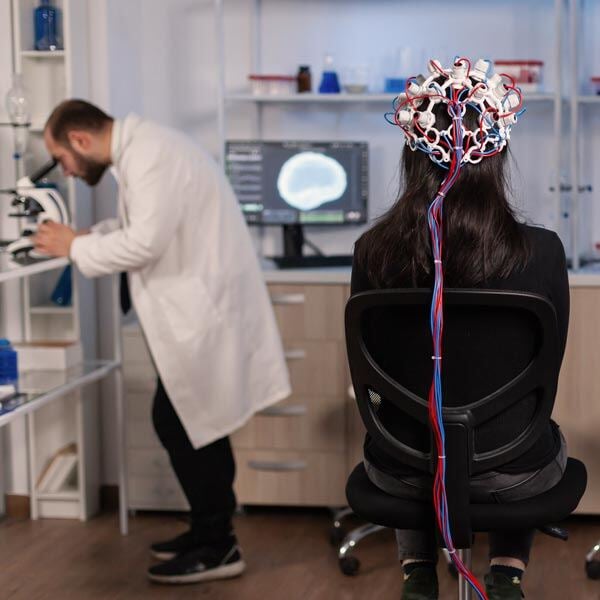
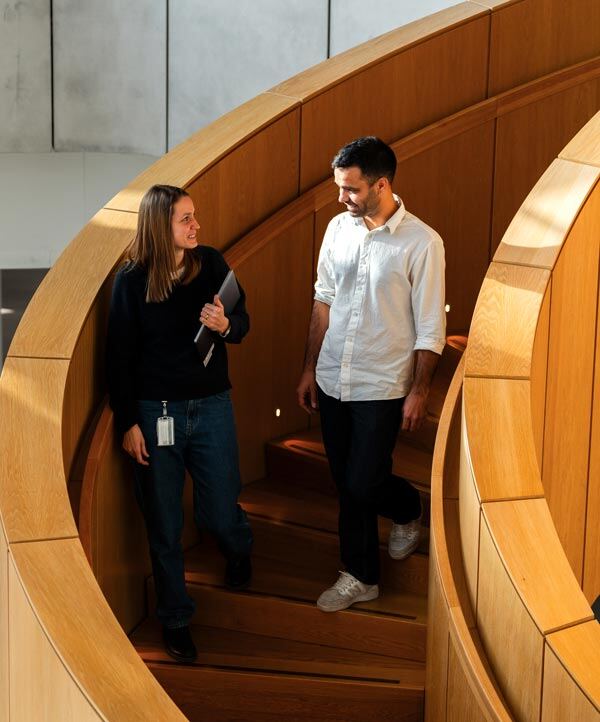
Daniel Rasmussen
Meet like-minded minds in neuroscience
Laura moved from Belgium to pursue her PhD at Aalborg University. At the Center for Neuroplasticity and Pain, she explores non-invasive vagal nerve stimulation to advance neuromodulation research.
Pedro came from Brazil to join the University of Copenhagen as a PhD student. His research in neuroscience is fueled by Denmark’s strong support system and collaborative academic culture.
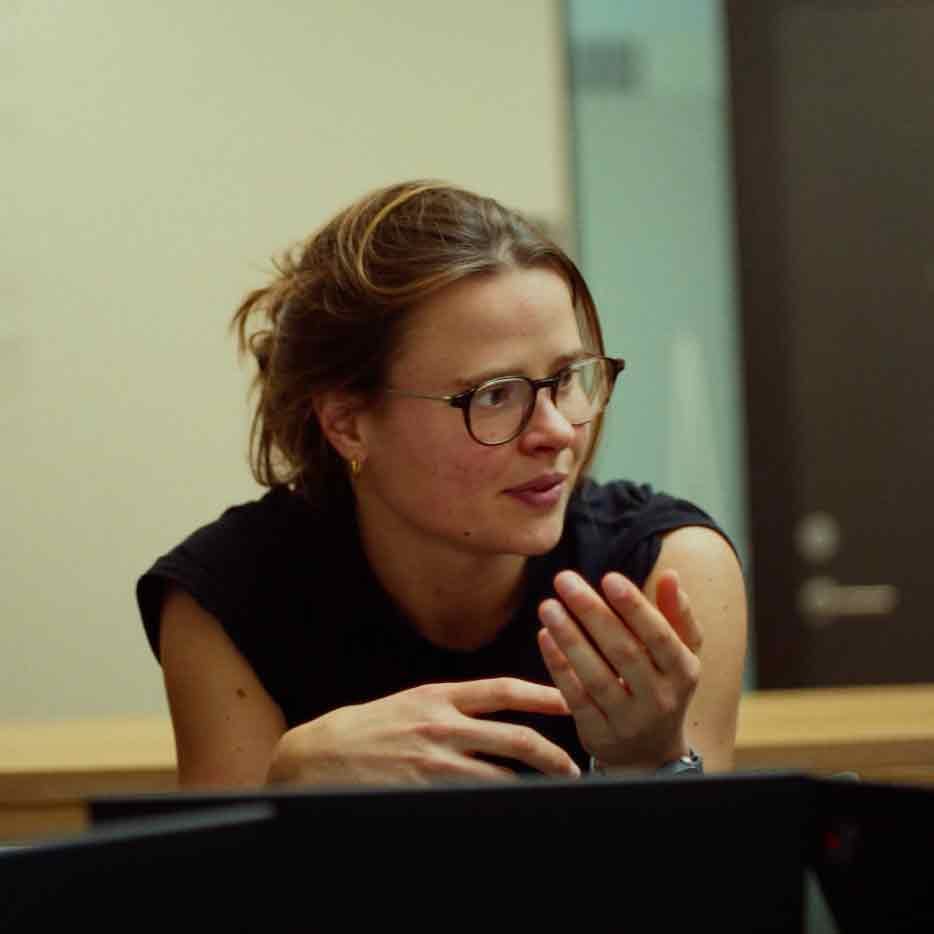

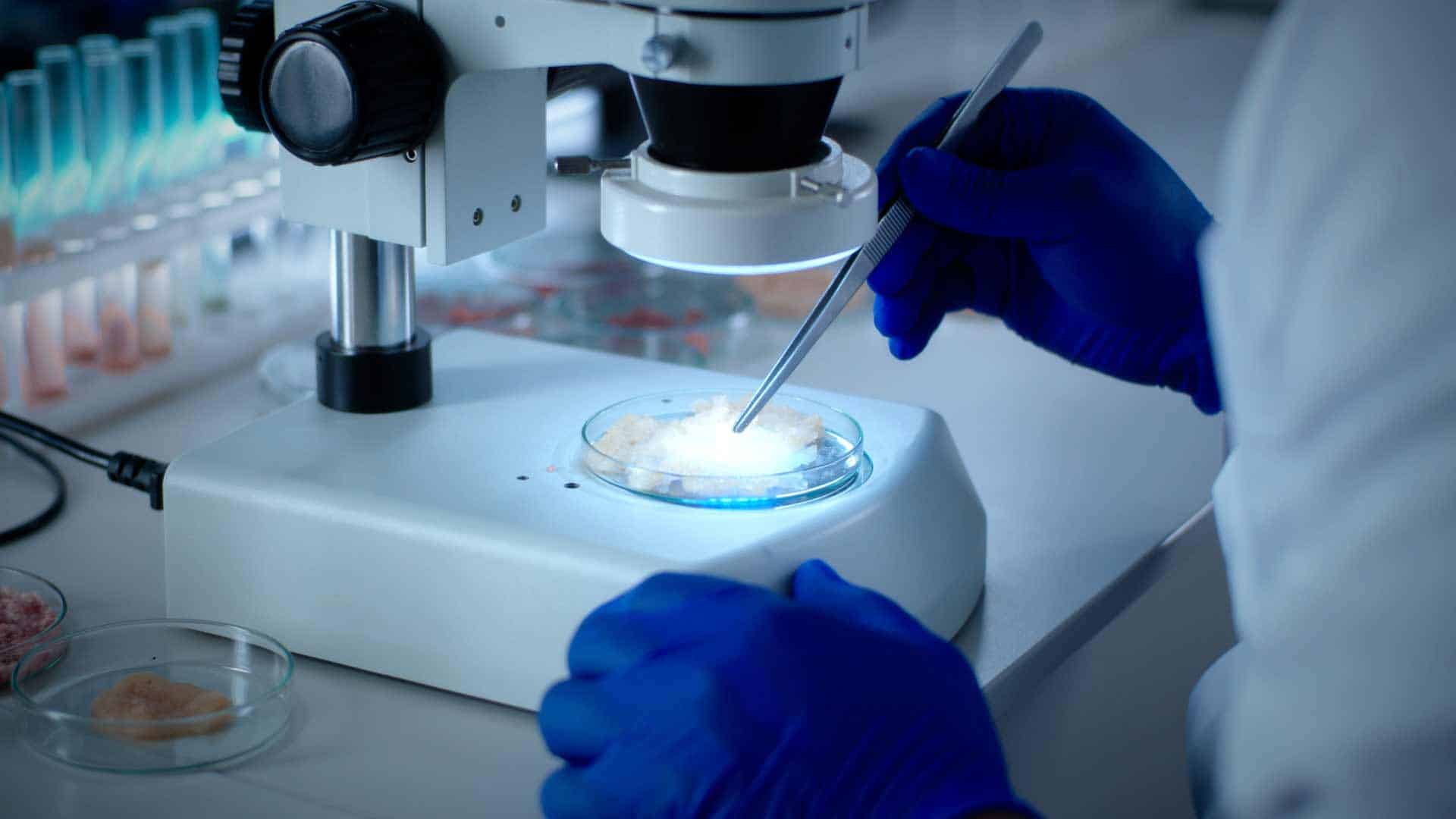
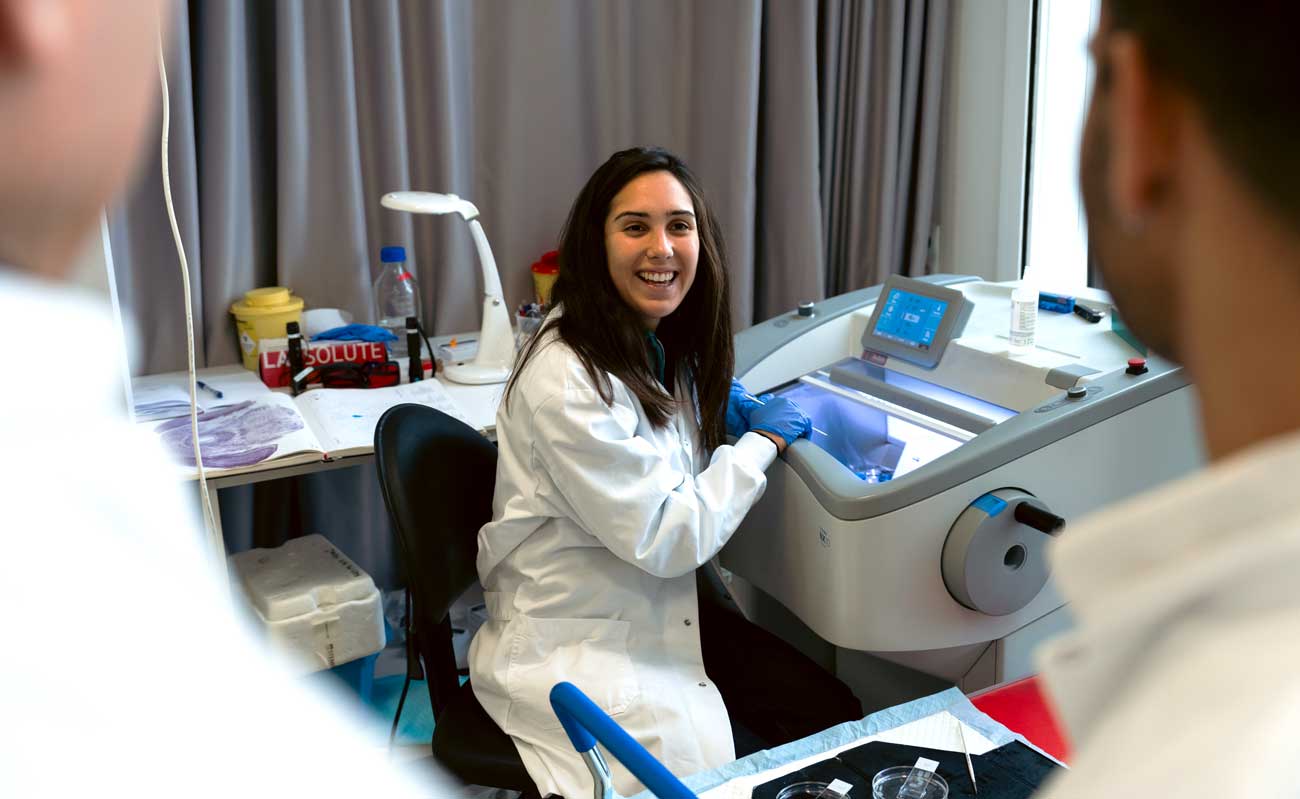
Get job alerts from Denmark
Sign up and we’ll keep you updated with exciting research career opportunities.
Social & news
